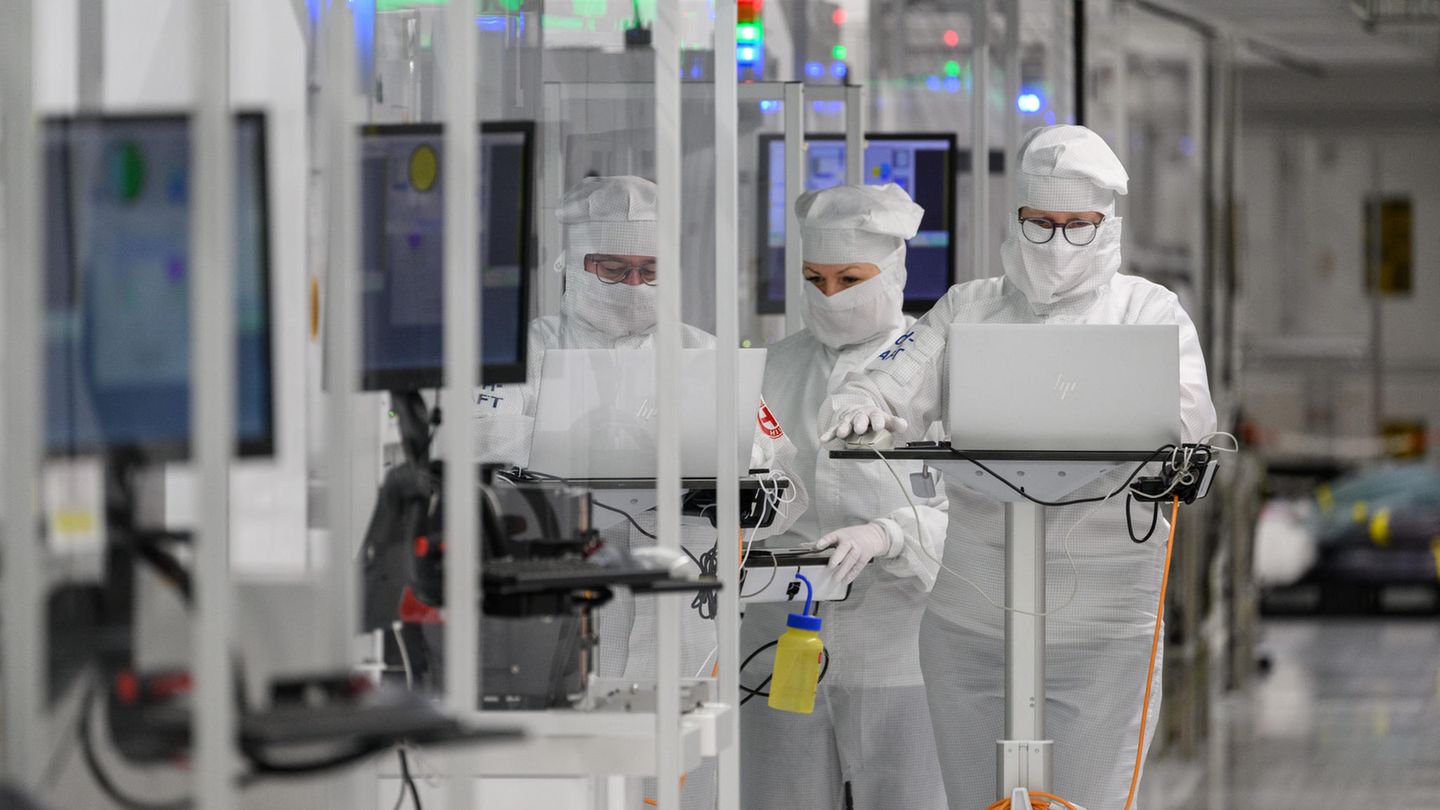With a new factory in Malaysia, the German semiconductor manufacturer Infineon is focusing primarily on future business in China. A highly risky strategy.

This is original content from the Capital brand. This article will be available for ten days on stern.de. After that, you will find it exclusively on capital.de. Capital, like the star to RTL Germany.
Infineon boss Jochen Hanebeck willingly put on a typical batik shirt with hideous green colors. Anwar Ibrahim, the Prime Minister of Malaysia, traveled from the capital to the Kulim technology park, a good 350 kilometers away, to appear in front of the cameras with the German manager. The opening of the new semiconductor factory was then a top story on the domestic broadcaster Star-TV. The German company therefore had no reason to complain about a lack of attention last week.
However, this does not change the fact that the 2 billion euro factory is one of the shaky investments in the world. The “Handelsblatt” newspaper rightly calls it the “worst possible time” for the factory to open. Infineon is struggling with a drop in profits and has to save wherever possible. Hanebeck is currently cutting 2,800 jobs in Germany and other European countries. While the company is building up new capacity in Malaysia, other Infineon plants are suffering from a lack of capacity utilization. Many expensive machines for semiconductor production are not running. This is burdening the balance sheet with the enormous sum of 800 million euros.
The investment in Kulim is like a bet on the future. The whole operation will only be profitable if demand for Infineon chips in China increases significantly in the next few years. Infineon and its two main competitors, NXP and Renesas, currently cover almost 60 percent of the needs of electric car manufacturers. But it is precisely in this particularly important segment of the semiconductor market that the parameters that have been set for years are changing.
On the orders of Chinese dictator Xi Jinping, the People’s Republic is currently investing heavily in the development and production of semiconductors. China wants to manufacture the most technically advanced chips itself, such as those produced by Nvidia for the field of artificial intelligence. But most experts believe that this will remain a pipe dream.
Infineon cannot afford a flop
The situation is different with chips like those produced by Infineon. In this area, Chinese manufacturers are catching up quickly. And even if they don’t quite reach the level of European and Japanese manufacturers, Infineon cannot rely on continuing to score points with higher-quality products as it has done so far. There is already an order from the very highest level in China that domestic car manufacturers should install more Chinese semiconductors. And the political pressure will grow. Xi Jinping is aiming for self-sufficiency in chips and other electronic components – and sees the fight for this as the most important battlefield in the economic struggle with the USA.
If the investment in Kulim turns out to be a flop, things will get tight for the entire Infineon group. How quickly you can end up with a useless factory and the consequences that come with it is shown by another group that once emerged from a Siemens division just like Infineon: AMS-Osram. In February, the German-Austrian company had to write off 1 billion euros on a new factory in Malaysia. The share price collapsed by 40 percent at times and has been languishing at a low level ever since.
Source: Stern




